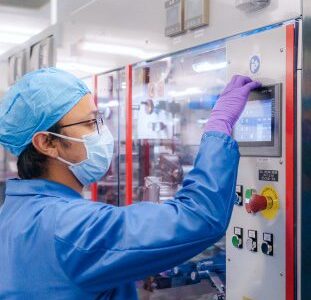Much of the transition to green energy is being powered by lithium-ion batteries, which produced an estimated $52.5 billion in 2022 sales, putting them comfortably ahead of the rest of the pack. In contrast, the zinc-ion battery market size was estimated at less than $10 billion. But that gap could shrink as the industry embraces a more sustainable business model.
According to a 2022 report from Argonne National Laboratory, compared to lithium, zinc is “far more naturally abundant and highly compatible with water.” And while it isn’t the perfect battery component — it can lead to short circuits when charging — there is little doubt that it is a much more eco-friendly resource than lithium.
“Zinc is an inherently safer, non-toxic, and earth-abundant material,” Dr. Christine Ho said in a 2022 interview with EKMH Innovators.
“Earth-abundant zinc itself is an easier material to mine: Zinc is 12X more available than lithium,” Ho said. “In terms of energy, intensity, and greenhouse gas emissions, mining zinc is also a greener, more sustainable process.”
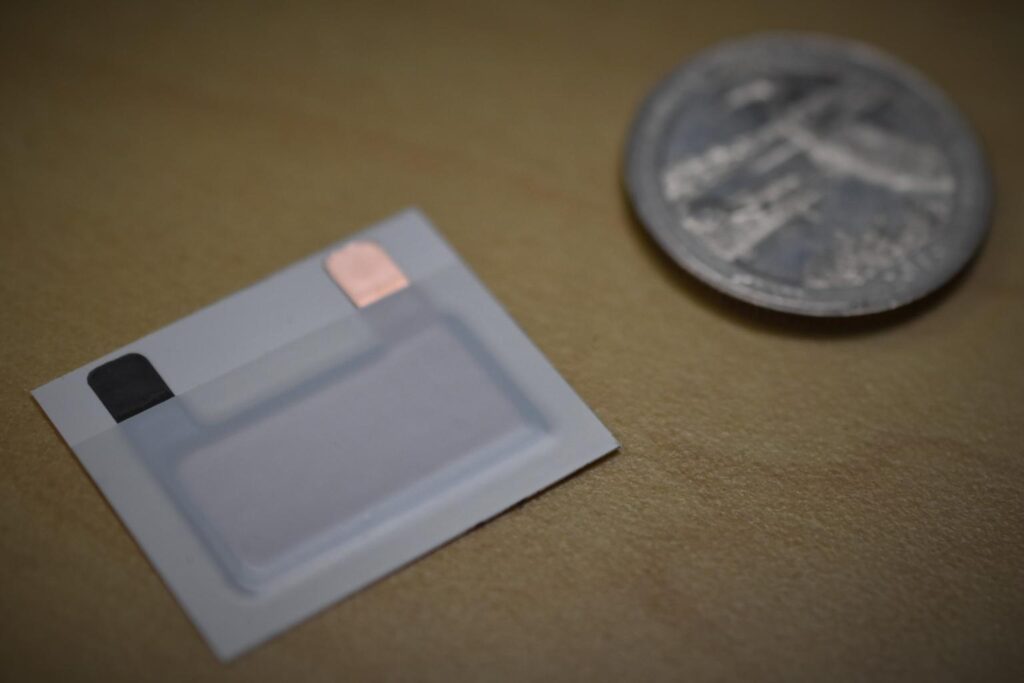
Photo Courtesy Imprint Energy
For these reasons, she considers zinc “a much better choice for the battery that’s going to be powering all types of electronics” — including batteries produced by Imprint Energy. Ho co-founded the Alameda, CA-based startup, where she now serves as chief technology officer.
Imprint is an energy storage company that aims to deliver the world’s most energy-efficient and sustainable batteries. Its proprietary ZinCore™ technology powers various pharmaceutical applications, agriculture, logistics, medical devices, and Internet-of-Things wearables.
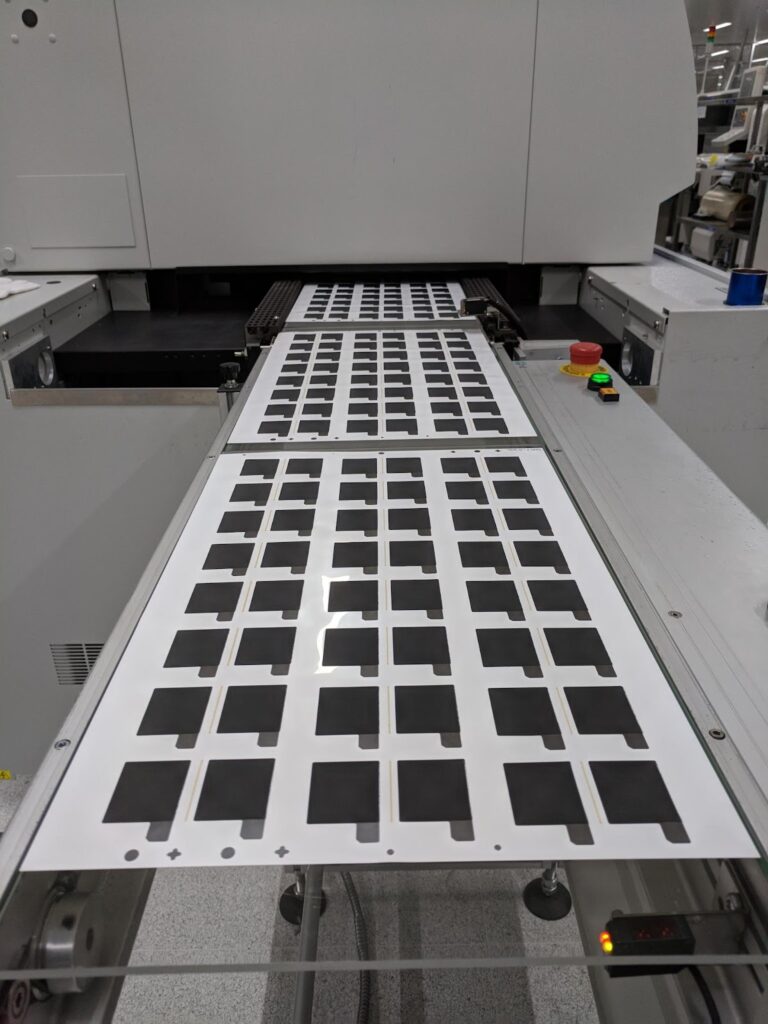
Photo Courtesy Imprint Energy
Ho is the primary inventor of the technology behind Imprint’s zinc-based batteries — something she undertook as a graduate student at the University of California, Berkeley. The firm claims on its website that ZinCore™ batteries provide 10 times more power than other zinc batteries. According to the company’s website, its products also are classified as non-hazardous goods and don’t face the regulatory and shipping restrictions imposed on lithium batteries.
Even so, lithium-ion batteries power most electronic devices and electric cars. That’s the case despite two major downsides to lithium batteries — they are expensive and can catch fire if not used properly. Ho told Bloomberg in a recent interview that she realized there was room for alternative chemistries in emerging battery applications.
One of those applications is a smart label that can be placed on packages or delivery boxes containing a small battery and transponder to help track them remotely. This process makes for more efficient and cost-effective distribution, reduces fuel use and waste, and lowers emissions.
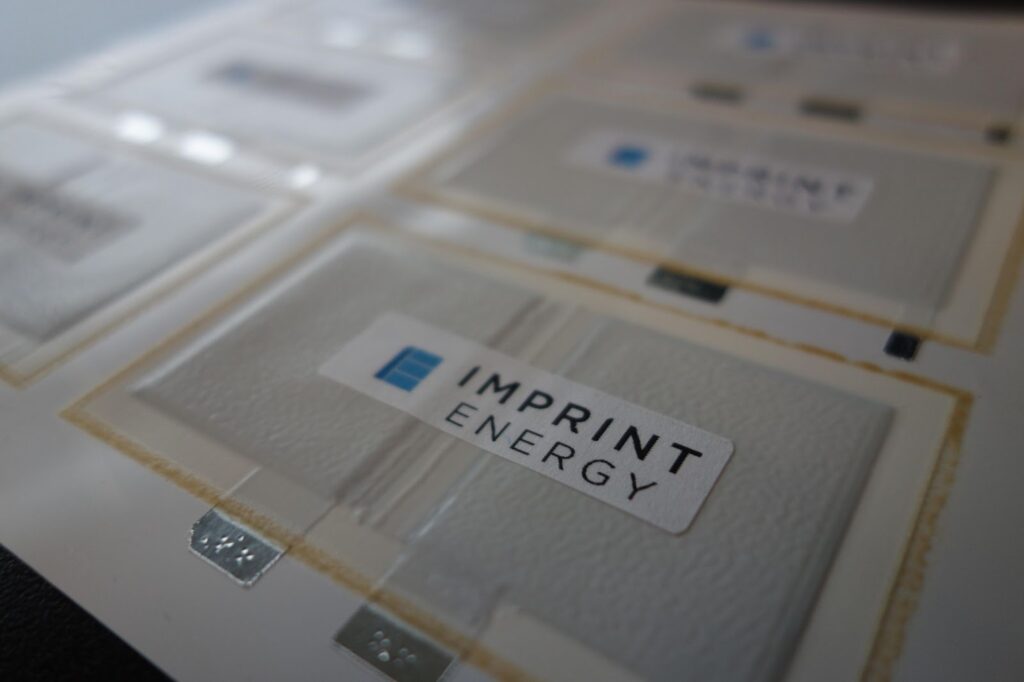
Photo Courtesy Imprint Energy
According to Ho, Imprint Energy’s sustainability program extends to the unique way its batteries are produced — through 3D printing rather than traditional manufacturing processes. The good news is that printing equipment is in ready supply and can be done in small spaces, so the company doesn’t have “to create new factories or expand [its] physical footprint for manufacturing.”
“Many people are already skilled in the art of printing: we approach manufacturers that already have existing equipment and leverage that to print our batteries,” Ho said. “In general, we’re taking advantage of an existing manufacturing footprint and working with people who have developed decades, even centuries, of know-how in printing. Building up production capacity is not a tall order because we can step into an existing ecosystem.”
While Ho leads the technology side of Imprint Energy, the company’s commercial side was bolstered with the addition of two high-profile business leaders who joined the board of directors last year. Tom Gebhardt was the former CEO of Panasonic North America, and Mike Splinter was the former Chairman and CEO of Applied Materials. Gebhart was also named CEO and is responsible for global business operations, customer relationships, product development, and strategic planning.
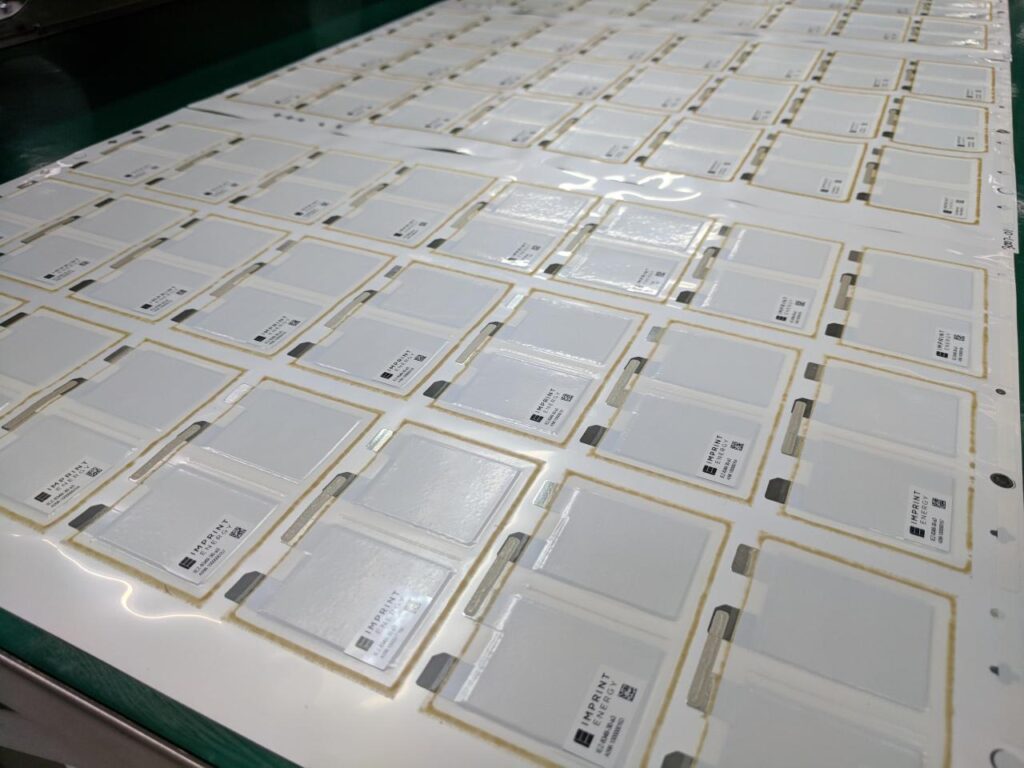
Photo Courtesy Imprint Energy
As of February 2023, SensOS, a Sony company, is holding a trial for Imprint’s batteries. Another test is underway with Renesas Electronics, which uses Bluetooth sensors to track food deliveries.
To date, Imprint Energy has raised $25 million from investors, including Phoenix Venture Partners and Global Value Investment Portfolio.


